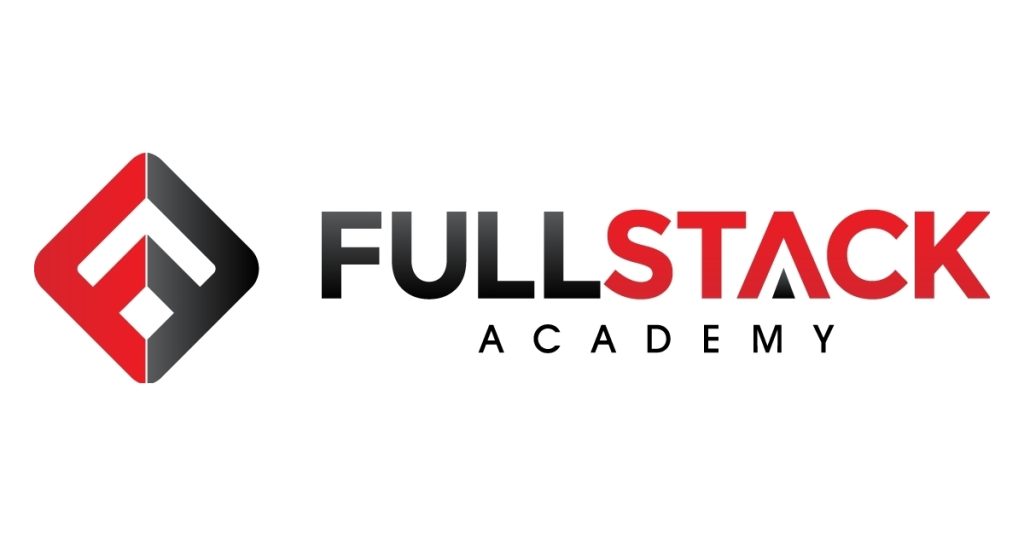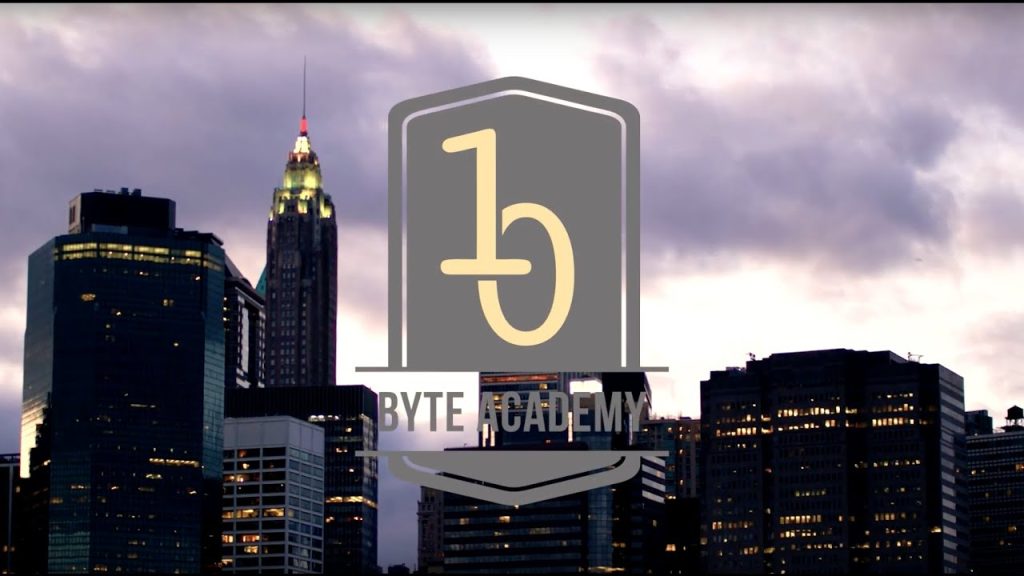We have ranked the best Web Development Bootcamps, which includes online web development bootcamps.
A good web development bootcamp should possess several key elements to ensure the best possible educational experience for its students. These programs are offered at colleges and universities, but also at private companies.
Students learn frontend and backend web development, and other skills necessary to be competitive in the growing demand for web developers.
The Best Web Development Bootcamps
1. University of Texas at Austin

The University of Texas at Austin offers a Front End and Back End Development Bootcamp through its Center for Professional Education. The bootcamp is designed to equip students with the skills and knowledge needed to become proficient in both front-end web development and back-end web development.
The program is offered in a 24-week format and covers a range of topics, and coding languages including HTML, CSS, JavaScript, React, Node.js, and SQL. Students will learn to build web applications, work on projects, and collaborate with other students in a supportive community.
The bootcamp focuses on practical, hands-on experience with multiple projects, allowing students to apply their learning in a real-world context. Students will also have the opportunity to work with industry professionals, who will provide guidance and feedback on their projects.
The University of Texas at Austin bootcamp also offers job placement assistance and networking opportunities. Students will have access to a team who helps them develop their resumes, prepare for interviews, and connect with potential employers.
The program is delivered through a combination of online lectures, in-person meetings, and hands-on projects. This self-paced format allows students to on their own schedule. Students will also have access to a team of instructors and mentors who will provide guidance and support throughout the program.
2. University of California Los Angeles

The University of California Los Angeles (UCLA) offers a comprehensive web development bootcamp designed to equip students with the skills and knowledge needed to become proficient in front-end and back-end web development. The program is offered in a part-time, 24-week format, and covers a range of topics to learn web development, including HTML, CSS, JavaScript, React, Node.js, and SQL.
The program is designed for students with little to no coding experience, making it accessible to beginners. However, it also offers more advanced topics to help students develop a deeper understanding of web development and software engineering. Students will learn to build web applications, work on projects, and collaborate with other students in a supportive community.
The UCLA bootcamp focuses on practical, hands-on experience with multiple projects that allow students to apply their learning in a real-world context. Students also work with industry professionals, who provide guidance and feedback on their projects.
UCLA also offers job placement assistance and networking opportunities to help students connect with potential employers.
3. Fullstack Academy

Fullstack Academy is a highly respected coding bootcamp that offers a web development boot camp that covers front-end and back-end web development. The program is designed to teach students the skills needed to launch a successful career, and is delivered through a mix of online and on-campus learning.
The Fullstack Academy web development boot camp covers a range of topics, including HTML, CSS, JavaScript, React, Node.js, and SQL.
Students will also learn how to do data analytics work with APIs, use Git for version control, and build web applications from start to finish.
Students also learn aspects of digital marketing, such as search engine optimization and analytics. The program is designed to be intensive and immersive, with students spending long hours on projects and assignments to build their skills.
Fullstack Academy's web development boot camp focuses on collaboration and teamwork. Students work together in pairs or groups on projects, learning to communicate and work effectively with others. The program also includes mentorship and guidance from experienced developers and assistance with job searches and interviews.
Fullstack Academy's web development boot camp is a full-time program that runs for 17 weeks.
The program is delivered through a combination of online lectures and in-person instruction, with students attending classes at the Fullstack Academy campus in New York City. The program is designed to be challenging, with a focus on practical, hands-on learning that prepares students for real-world web development projects.
Fullstack Academy's web development boot camp is a comprehensive program that provides students with the skills and knowledge needed to launch a successful career in development and digital marketing. The program is rigorous and challenging, but also supportive and collaborative, with a focus on practical, real-world experience.
4. Byte Academy

Byte Academy is a coding bootcamp that offers a full-stack web development bootcamp. The program is designed to teach students the skills needed to become a software engineer and a web developer.
The Byte Academy bootcamp covers a wide range of topics learning web development, including HTML, CSS, JavaScript, React, Node.js, Express, MongoDB, and SQL. Students will also learn how to use version control with Git, work with APIs, and build web applications from scratch. The program is designed to be intensive and immersive, with students spending long hours working on projects and assignments.
Byte Academy's web development bootcamp focuses on finance and fintech. The program includes a special emphasis on building applications for financial services and markets, with students learning about financial concepts and tools. This makes the program a good fit for students who are interested in pursuing a further career path in finance or fintech.
The Byte Academy web development bootcamp is a full-time program that runs for 14 weeks. The program is delivered through a combination of online lectures and in-person instruction, with students attending classes at the Byte Academy campus in New York City. The program includes mentorship and career services, with students receiving guidance from experienced developers and assistance with job searches and interviews.
5. University of California, Berkeley

The UC Berkeley Extension Boot Camps offer full-time and part-time web development bootcamps in both in-person and online formats. Their curriculum covers the most in-demand web development technologies and latest tools.
Students also have access to a range of career services and networking events.
The UC Berkeley Extension Boot Camp in web development is an intensive program designed to teach students the skills needed to become a full-stack web developer.
The program covers development of static web pages, teaching students HTML, CSS, JavaScript, jQuery, Node.js, React.js, and other relevant technologies.
The program is delivered through a combination of online courses and in-person classes, with students attending classes at the UC Berkeley Extension campus in San Francisco.
The program is designed to be fast-paced and immersive.
Throughout the program, students will work on projects and build a portfolio of work that demonstrates their skills and abilities to potential employers.
Students also receive assistance with job searches, resume building, and interview preparation.
6. Columbia University

Columbia University offers a full-time web development bootcamp through its School of Professional Studies.
Columbia's curriculum focuses on the MERN stack (MongoDB, Express, React, and Node.js) and includes project-based learning and mentorship from industry professionals.
Designed to provide students with the skills and knowledge needed to become a full-stack web developer, the intensive program covers a range of both front end developer front-end and back-end technologies, including HTML, CSS, JavaScript, jQuery, Node.js, React.js, MongoDB, and more.
The program is delivered through a combination of in-person and online classes, with students attending classes at the Columbia University campus in New York City.
The program is designed to be fast-paced and immersive.
Throughout the program, students work on projects and build a portfolio that demonstrates their skills and abilities to potential employers.
Students receive help with job searches, resume building, and interview preparation.
The program is taught by experienced instructors who are industry professionals, and who provide students with insights and knowledge from their experience working in the field.
7. University of Denver

University of Denver: The University of Denver offers a full-time web development bootcamp in partnership with Trilogy Education Services.
Students learn the most in-demand web development skills and have access to career services and professional development opportunities.
The full-time web development bootcamp offered by the University of Denver equips students with the necessary skills and knowledge to become a full-stack web developer.
The program blends in-person and online courses, with students attending classes at the University's campus.
The curriculum covers both front-end and back-end technologies, such as HTML, CSS, JavaScript, jQuery, Node.js, React.js, and MongoDB, among others.
Additionally, students learn about project management, version control, and web development best practices.
Throughout the program, students work on projects that enable them to build a portfolio of work showcasing their abilities to potential employers.
The university also supports students with their resume, job search and interview preparation.
The instructors are experienced industry professionals who provide students with valuable insights and knowledge gained from their work experience.
8. University of Minnesota (Saint Paul)

Offered through the College of Continuing and Professional Studies, the University of Minnesota's web development bootcamp is a part-time program that prepares students for careers as web developers. It is available online and/or at the Saint Paul campus.
Designed to be completed in 24 weeks, the program includes evening and weekend classes to accommodate students' schedules.
Students will learn a variety of front-end and back-end technologies, including HTML, CSS, JavaScript, React, Node.js, and MongoDB.
The curriculum is project-based, with students working on projects and building a portfolio of work that they can use to showcase their skills to potential employers.
Students receive help with interview preparation and resume building.
Students also have access to a network of alumni and industry professionals.
The web development bootcamp is taught by experienced instructors who are industry professionals, and who bring a wealth of knowledge and expertise to the classroom.
The program emphasizes collaboration and teamwork, with students working in small groups to complete projects and solve problems.
9. University of Toronto

The University of Toronto School of Continuing Studies offers a 24-week web development bootcamp in partnership with Trilogy Education Services.
With a curriculum focused on hands-on coding and career support, the program provides students with the practical skills and knowledge needed to become proficient in web development.
Students will learn development using a variety of programming languages, including HTML, CSS, JavaScript, Node.js, and React.
Students also learn about database management, server-side development, and API integration.
The program includes hands-on projects that allow students to apply their learning to real-world scenarios.
The program is designed for individuals who are interested in pursuing web development careers, as well as for professionals who want to enhance their skills in this area.
Students receive support and guidance from professional web developers throughout the program, and they have access to career assistance, including portfolio reviews and job search assistance.
Frequently Asked Questions
What makes a web development bootcamp 'one of the best'?
A web development bootcamp should offer a comprehensive and up-to-date curriculum that covers the latest industry tools and practices is necessary. The curriculum should focus on practical industry skills that are in demand in the job market, giving students a chance to learn and develop the skills needed for employment.
The instructors at the bootcamp should have industry experience, be skilled in teaching and mentoring, have communication skills and be able to provide guidance, feedback, and support to students as they work through the program. This is important in helping students understand complex topics and develop their skills to their fullest potential.
The bootcamp also should provide opportunities for students to work on real-world projects both individually and in teams. This can help students build a portfolio of work that demonstrates their abilities to potential employers.
Furthermore, the bootcamp should offer career services, including job placement assistance, networking opportunities, access to career coaches and interview coaching, to help students connect with future employers and find employment in the tech industry after completing the program.
The bootcamp should foster a supportive and inclusive community of students, instructors, and alumni, providing opportunities for networking, mentorship, and ongoing learning and development.
Additionally, it should offer flexible scheduling options, including part-time and online programs, to accommodate students with different schedules and learning preferences. Finally, the bootcamp should have a strong reputation in the industry and be recognized by employers for producing skilled and job-ready graduates.
Why should I attend a Web Development Bootcamp?
Attending a web development bootcamp has many benefits. Web Development Bootcamp programs are typically immersive and intensive, allowing for rapid skill acquisition and the ability to quickly gain new skills.
Bootcamps focus on practical, real-world skills, giving students hands-on experience building applications and collaborating with other developers. This can help develop a portfolio of work that demonstrates one's abilities to potential employers.
Many bootcamps offer job placement assistance, networking opportunities, and interview coaching, making it easier to find a job in the tech industry.
Bootcamps also foster a supportive community of fellow students and instructors who can provide help, encouragement, and feedback throughout the program and beyond.
Bootcamps also offer flexibility, including part-time, self-paced and online programs, making it easier to fit learning into a busy schedule.
Finally, many bootcamps have professional web developers serving as instructors or guest speakers, providing students with valuable insights and knowledge from those with experience working in the field.
Overall, attending a web development program can provide a fast, efficient, and effective way to gain the skills and knowledge needed to launch or enhance a career as a web or software developer -- no matter where a student is on their coding journey.
How does a Web Development Boot camp differ from a computer science degree program?
Web development bootcamps and computer science degree programs differ in several ways. Bootcamps are usually shorter and more focused on practical, job-ready skills, while degree programs feature computer science fundamentals and a broader range of topics beyond web development.
Bootcamps are more intense and fast-paced, while degree programs are spread out over a longer period of time. Some bootcamps offer self-paced courses and many require group projects.
Bootcamps are often less expensive than degree programs, although the credibility of a degree from a reputable university can carry more weight with employers.
Degree programs usually have more academic requirements, such as general education courses and a minimum GPA, while bootcamps are typically open to anyone who meets the technical requirements.
Ultimately, the choice between a bootcamp and a degree program depends on your goals, learning style, and budget.
What type of web development course is included in a web development bootcamp?
In a web development bootcamp, students learn a range of technical skills and tools needed to build web apps. The specific curriculum varies depending on the program, but common topics include:
- Front-end development, including HTML, CSS, and JavaScript.
- Back-end development including programming languages such as Node.js, Python, Ruby, and databases like SQL or NoSQL.
- Full-stack development.
- Version control.
- Agile development, which emphasizes iterative development and frequent feedback.
- Web application frameworks.
- Testing and debugging.
- Deployment and hosting.
Overall, an online web development bootcamp or in-person program will provide you with a broad range of technical skills and knowledge that will enable you to build modern, scalable web applications.
Do web development bootcamps really work?
Yes, web development bootcamps can be effective in helping individuals gain the skills and knowledge they need to pursue a career in web development.
Bootcamps offer a focused learning environment, with an intensive curriculum that covers the essential skills. This can help students learn more efficiently and effectively than they might in a traditional academic program.
What are some of the benefits of a bootcamp?
Bootcamps often include hands-on projects that simulate real-world scenarios, giving students practical experience that prepares them for the demands of the career field.
Bootcamps also offer industry connections and job placement services, helping students land their first job in the field or make valuable industry connections.
Finally, bootcamps are often shorter and less expensive than traditional degree programs, making them a more accessible option for individuals who want to pursue a career in web development but don't have the time or resources to commit to a four-year degree.
However, it's important to choose a reputable program with a comprehensive curriculum and a track record of success in helping its students achieve their career goals.
What is a Full Stack Web Development Program?
A program focused on full stack development is a comprehensive educational program that covers development, as well as other technologies and tools used in the development of web applications.
Front-end development refers to the part of web development that deals with the user interface (UI) of a web application. This includes HTML, CSS, and JavaScript, which are used to create the layout, style, and interactivity of a website.
Back-end development refers to the part of web development that deals with the server-side of a web application. This includes programming languages such as Node.js, Python, Ruby, and databases like SQL or NoSQL. Back-end developers are responsible for creating the logic and functionality that powers a web application.
The program teaches development skills, which includes learning how to create and manage databases and develop APIs.
The full stack development program also may cover other tools and technologies commonly used in web development, such as version control systems like Git, web application frameworks like React, Angular, or Vue.js, and testing and debugging techniques.
Do Web Development Bootcamps offer an In-Demand Curriculum?
Web development bootcamps typically offer an in-demand curriculum that is designed to teach the skills and technologies that are currently in high demand in the job market. Students learn the skills that are most relevant to current web developers.
Will a bootcamp prepare me to be a web developer?
Attending a bootcamp can be an effective way to gain the skills and knowledge needed to become a web developer. The extent to which a bootcamp can prepare you for a career in web development will depend on several factors, including the quality of the bootcamp program you choose.
Do current web developers teach at bootcamps?
Yes, the best web development bootcamps hire current or former web developers and full stack web developers to teach their programs. This is because experienced web developers are often the best qualified to teach the technical skills and knowledge needed to become a successful web developer.
What other types of bootcamps might interest me?
Bootcamps are available for a wide range of subjects beyond web development.
Some popular types of bootcamps include:
- Data Science Bootcamps focus on skills and tools needed to collect, analyze, and interpret complex data. Students learn programming languages like Python and R, as well as statistical analysis techniques and machine learning algorithms.
- Cybersecurity Bootcamps include courses on protecting computer systems and networks from cyber threats. Students learn about network security, encryption, penetration testing, and incident response.
- UX/UI Design Bootcamps focus on designing effective and user-friendly interfaces for websites, mobile apps, and other digital products. Students learn about user research, information architecture, visual design, and prototyping.
- Product Management Bootcamps focus on the development of digital products from conception to launch. Students learn about market research, product strategy, project management, and agile development.
- Digital Marketing Bootcamps focus on creating and implementing effective digital marketing campaigns. Students typically learn about search engine optimization (SEO), social media marketing, email marketing, and analytics.
- A software engineering bootcamp focuses on software development and the skills and knowledge needed to become software developers, including computer programming, software architecture, and software development methodologies.
- Online coding bootcamps use a combination of live online classes, pre-recorded video lessons, and interactive exercises and assignments to teach students the skills they need to become proficient coders. Online coding bootcamps often include flexible courses.
Overall, bootcamps are available for a variety of subjects and can be a great way to gain skills and experience in a short period of time. When considering a bootcamp, research the program carefully to ensure that it offers high-quality instruction, relevant curriculum, and opportunities for networking and career support.
More resources:
